On Thursday, University of Minnesota President Rebecca Cunningham discussed her administration’s goals regarding affordability, increasing legislative support, supporting student activism and free expression, and campus safety.
Cunningham also shared the steps she took to rebuild trust with students and faculty after former Interim President Jeff Ettinger’s decision to postpone the search for the director for the Center of Holocaust and Genocide Studies.
Former Minnesota Daily reporter Bianca Caputo conducted the interview.
Minnesota Daily: As reported by the Minnesota Daily, students will see a tuition increase of up to 5.5%. With widespread inflation, students may struggle to meet costs. What are your presidency’s goals for reducing tuition costs for students and what programs are in place to support middle-income and low-income students?
Rebecca Cunningham: “Affordability is really important. And I know I’ve shared with you and the University community that I was a first-generation student — the first in my family to go on to college right after high school and did so with the help of Pell Grants and scholarships. So affordability is certainly a really important part of the University for me, and then public education and with that, the cost of a public education that is available and accessible to many people is really important to me.
I did see the tuition increase this past year by the Board. I also mentioned, and I think you heard me say yesterday, that one of the things I’ve been delighted to find out here is that, even with that, the University of Minnesota really maintains a commitment to support those who need the most support.
And so the University of Minnesota, there’s what we see for sticker price, and then there’s what students actually pay. And I know those can be really confusing, both for families and for students, but because we provide such a rich array of financial aid and scholarships, that actually families that make under $110,000 a year, our middle class and less resourced families, we’re actually the most affordable four-year option for school in the state of Minnesota. And I’m certainly really, really excited about that. And certainly, as a goal to maintain that affordability for students, especially for our students who need the most support.
So I do understand that costs are up and costs are up everywhere. And with that, the costs of running the University are also up. And we want to make sure that, with the funding that we have, we can provide the services that students need and this top premier education that we offer and to maintain that.”
Daily: In past meetings, the Board addressed decreases in legislative support which have postponed several University goals, like the return of the Fond du Lac land. What plans do you and the Board have for increased legislative support?
Cunningham: “Last year, our government relations team hired a new director, Melisa López Franzen, and she certainly has been building that team appropriately, and I’ve been out and about and working to meet our legislators and our state representatives. In fact, at the fair yesterday, I got a chance to meet with some and I’ve certainly been over the Capitol a number of times even before I started to build those relationships. But we do, as a state’s public university, we do receive state funding from the legislature. And when that does not happen, that does mean we have less funds, and when we have less funds of fixed costs, it does lead to either not doing things and or increasing other ways that we have to raise money, which I think you saw in tuition.”
Daily: Will certain University goals be reviewed to see if they can be achieved without support from the legislature?
Cunningham: “So we’re always reviewing what our priorities and goals are in the face of our current budget and budget limitations. So that’s pretty much a constant wheel. You know, we don’t receive all of our funds from the states. We obviously have the revenue sources, as we talked about, as well as research funds, etcetera, and philanthropic funds as well. We’ll launch a new campaign next year at the University. So we’re always looking at all the ways that we can bring money and resources to the University, and then we’re constantly also reviewing what that means for what we have the funds to do, and where our hopes and dreams can be for new, exciting initiatives. And then what things we need to stop doing so that we can afford to keep our budget balanced, which we do every year, provide a balanced budget to the state.”
Daily: Do you feel confident, with the new team coming in, that we’ll be able to achieve more legislative support this year, or is that up in the air?
Cunningham: “I think it’s always up in the air. So we’re in partnership with the state and we will continue to work on our end to be good partners to the state. I think we also really need to think about the value, the amazing value, that we bring to the state, whereas a leading public research university, one of the top 10 in the country, we bring a value to the state of Minnesota that is really important for the people in Minnesota and gives the tremendous value for the students in Minnesota to then come here, which then many stay and call Minnesota home after they graduate, and with that, continues to drive economic viability and sustainability and success for the state of Minnesota.
So, I think that’s the other way to think about how we partner with the state. I think, you know, not only that, but the University also in our research and discovery mission, we’re bringing new innovations to the state. We rolled out 230 startups since 2006. Those create small businesses that stay in Minnesota. These are things that bring value to the state and those are the kinds of conversations that I also have with state legislators, in addition to conversations about what we’re asking from the state, about the amazing value that we provide. You know, how we’re in every county in Minnesota when you count all of our extension programs, our five campuses across the state. So these are a constant conversation, but a sustainable budget has to balance state investments and affordability, fair compensation as a large employer, excellence in education and research engagement.”
Daily: Recently the Board of Regents adopted a position of neutrality on investment decisions regarding the consolidated endowment. What are the administration’s plans for handling campus protests in the fall?
Cunningham: “I mean, first of all, the University of Minnesota has always been a welcoming place for students to have a voice heard, whether it be protests or pickets or other means of free expression. And I think we can see that by the fact that, for a long time, you’ve had policies here on how to support free speech and expression. Other universities have required for a long time that for any such protests, there be a permit, for example, and that’s not the University of Minnesota’s policies. So, you know, I just can’t say loudly enough, I’m thrilled that our students want to use their voices to try to change the world in all kinds of ways. And the world will continue to change in ways we don’t yet imagine, as we sit here in August, between now and next July, and student voices are an important part of that, as are our staff and faculty voices. So I just really want to, you know, encourage that continued enthusiasm and interest in being involved in our communities and working to change the world. As a public university, we have also a mandate and a fundamental focus on First Amendment speech and free speech, and that’s allowed and is mandated by law that it be allowed.
So with that, we also want to make sure we have a safe and welcoming environment for all of our community. And with that, the University of Minnesota has had long-standing policies that are not new. What’s rolled out the other day, I just can’t say loudly enough: We did not create those policies. Those are policies that the University of Minnesota has had that shared governance created over the last 10 years. What the team did this summer was simply try to consolidate those and make them really visible and clear. Because, I don’t know if you’ve tried to poke around on our policies on our web pages, but they’re confusing. Sometimes you have to kind of dig here and dig here and dig here. So what we wanted to do was to try to make it really clear to our community what the policies were to support their free expression so that they could do that and still be well within the bounds of our university policies and also of local laws.”
Daily: At the Board of Regents Retreat you mentioned a ‘no confidence’ vote in Interim President Ettinger’s leadership. What is your plan to increase confidence in university administration this fall as students return?
Cunningham: “Well, I think there’s a long commitment here of academic freedom. And you know, if we want to reiterate that, I know Provost Croson is going to be launching a great series on the topic. We’re bringing in speakers and helping to share ideas on the topic, and that’s by no means to mean that people here don’t already know those concepts. It’s just that there’s different examples around the country and around the world right now of how those are playing out, and I think University of Minnesota can be on the forefront in terms of leading how we discuss those.
I think the other thing to do is, you know, I’m new here, I’m out in the community. I’ve been meeting tons of people, trying to be really transparent about the decisions that we’re making. I mean, hence the policies, for example, that we put forth. I’ve traveled to all five campuses just in the eight weeks that I’ve been here so far, trying to get to know communities and our staff and students and teams across those communities. Meeting with shared governance, met with the student leaders and faculty leaders you know, working to get to know the community and trying to have good, open lines of communication and lots of transparency.”
Daily: Faculty raised concerns over academic freedom after the postponement of the director search for the Center for Holocaust and Genocide Studies. How will you rebuild trust with faculty members in your administration?
Cunningham: “You know, I’m out and talking to lots of different folks. I think that that decision was certainly made before I was President, and I know Interim President Ettinger weighed that decision carefully on a number of different factors. In the message, right in July after I became president, I outlined two proactive steps that we’re taking with our faculty to further explore academic freedom and shared governance. I’ve asked Provost Croson to appoint a diverse faculty-led committee to review and to create a shared understanding of those policies and how those policies and academic freedom intersect so that we can all be on the same page about it. I think there was some confusion about it by many different people, and I think we should get a shared understanding.
And then again, we’re looking to, in consultation with faculty staff and academic leaders, arrange some robust conversations about the current national landscape and challenges around academic freedom and shared governance. So hopefully that, as well as working with the community on the exciting visioning and strategic planning we’re doing moving forward. I think one of the best ways to build trust is to create a shared vision together and then work really hard towards it.
And I’m really looking forward to a broad, robust, community-engaged process over the course of the next year, where students and faculty and staff and even our community and alumni will have the opportunity to help dream and vision together about where we want to be in the next five and 10 years, and then we can start to chart the course together towards that. And hopefully, both that process and then the implementation of it will begin to build trust.”
Daily: Safety has been a major concern for students when deciding on their universities. What are your new plans for addressing safety and security on campus?
Cunningham: “There’s a couple things here. I mean, first of all, overwhelmingly, the numbers that I’ve seen (show) the campus itself – the University campus itself – is incredibly safe. So I just really want to reassure, first of all, our community about that. We are in an urban area, and all urban areas, and every community, actually rural or urban, when you put 65,000 people or so together, does have an assortment of human interactions that happen in it. The statistics I’ve seen recently have [shown] that crime numbers and incidents have been reduced in the communities surrounding, which I think is great. I think there’s a number of things that the University has done over the past year. You know, we’re really enhancing the Safe Walks and the Safe Rides. There’s a new safety center that is opening in Dinkytown next week, where we’re trying to help have our Department of Public Safety be closer to some of the areas where there’s been more incidents to make sure that we can support the local police in their job and responding.
Yeah, I think that those are some of the pieces. You know, so I just say the Twin Cities is a far safer city than an awful lot of cities all across the country, including many that I’ve lived in. And one of the great benefits that students and faculty have coming and being here is that it is an urban environment, and we have amazing arts and theater and community and restaurants and great things to do. And so I think that that urban environment is a great benefit as well and I think our students feel that.”
Daily: Outside of the things that I’ve asked and brought up, what are your other major goals for your administration?
Cunningham: “One of the first things I’m focusing on, I’m really excited about, is the University had MPact 2025, which is coming to an end, and with that, we get to chart a course together for what the next strategic plan will be for the University. And, I think in addition to having great initiatives and things that we measure together like MPact 2025 did, I’m really looking forward to also having the University help create really a shared vision about who we want to be and what uniquely sets us apart from many other universities. And there are some great differentiators we have here, and opportunities for our students and faculty to be here, and why they should be here, and how we can highlight those and lean into them more. So I think that’s a really exciting part of my focus for this next year.
I’m also very focused a fair amount on how we operate a system. So we have five great campuses. Those offer each an opportunity for students to find the right end for them, all across the state, with totally different environments, different opportunities, different communities, different sizes, different urban, rural focus, there’s really a place for any student’s interests and preferences across our University of Minnesota system. How we work together as a system and are efficient as a system is part of my interest, and that’s one of the reasons I’ve been to all five campuses now in my first eight weeks. You don’t really know what places until you get to walk it, right? So I’m excited that I got to do that.
Certainly, we have a focus on health and the total health of Minnesota. Minnesotans are looking to the U of M to lead the future of health for our states, and we’re really well-equipped to deliver on that. We’re providing great world-class care for patients and innovations that lead to so many life-saving treatments. We’re also the biggest trainers of our health care workforce for not only the state of Minnesota but certainly provide an amazing workforce, even beyond. But as Minnesota faces where all states do, which is our workforce decreases and challenges in rural health, I’m focused on how the University of Minnesota can help respond to that. So there’s a great opportunity. When I’m talking about health, health in Minnesota means many things, not just health for people. It means health in animals, health of our soil, health of our agricultural, sustainability health. It means mental health. So also how art and the humanities help health. I mean, there’s lots of ways to think about this, and the University of Minnesota, is one of the four schools in the country that has a full suite of Health Sciences schools, is really uniquely able to deliver on that promise of improved health across Minnesota and to be leaders in the nation on this.”
Editor’s note: This article was edited for readability, conciseness and clarity.


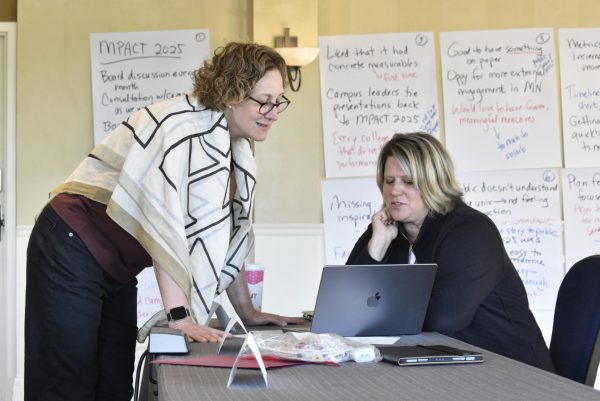
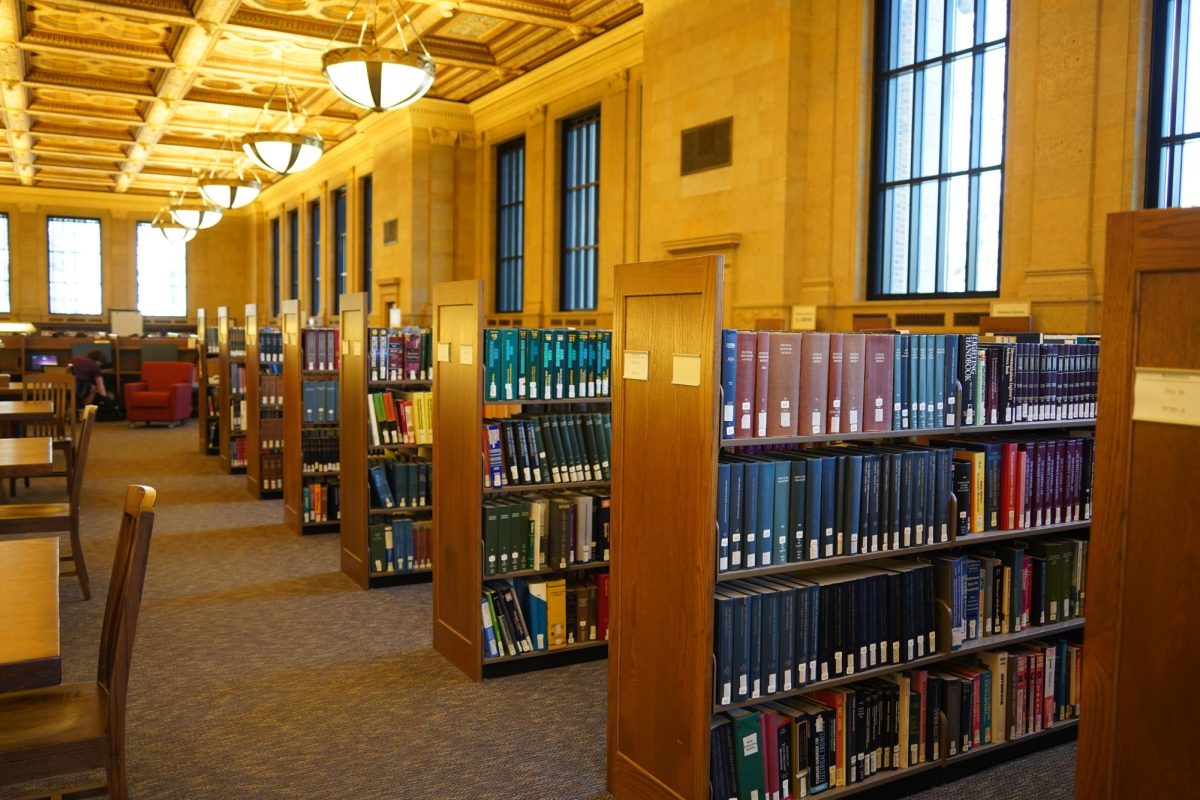
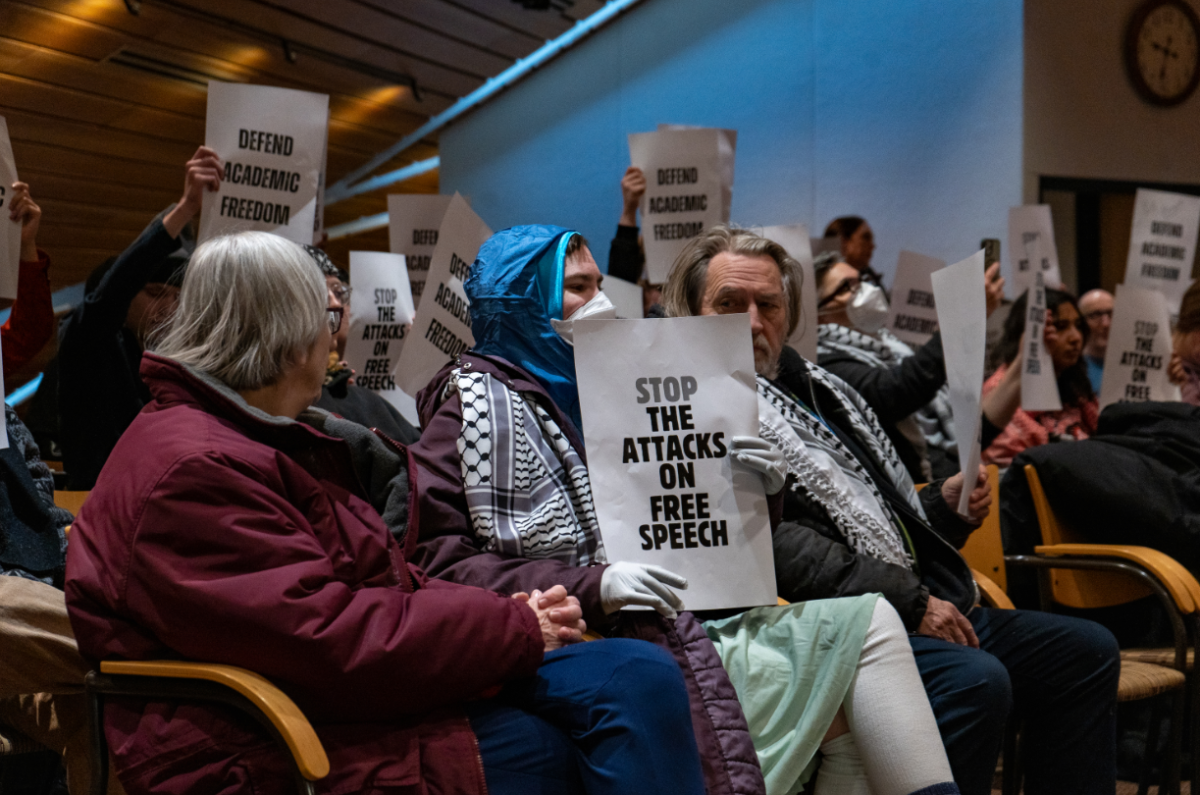
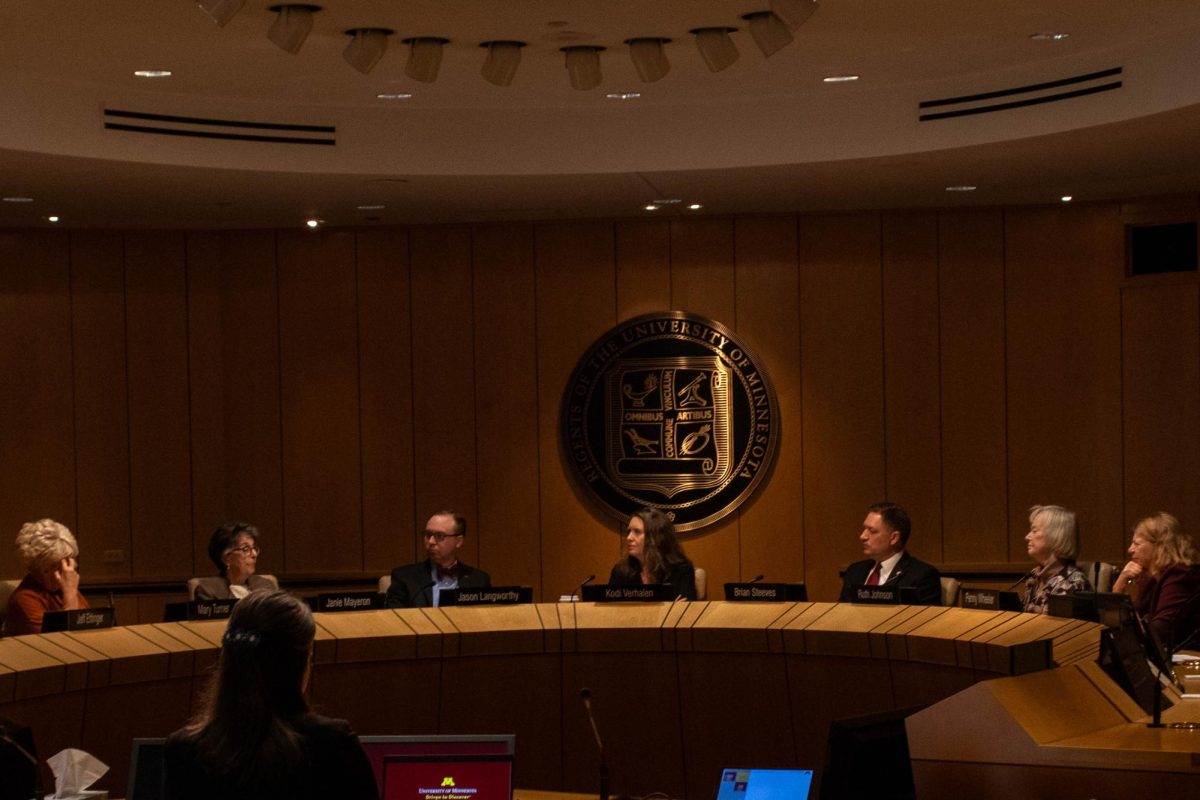
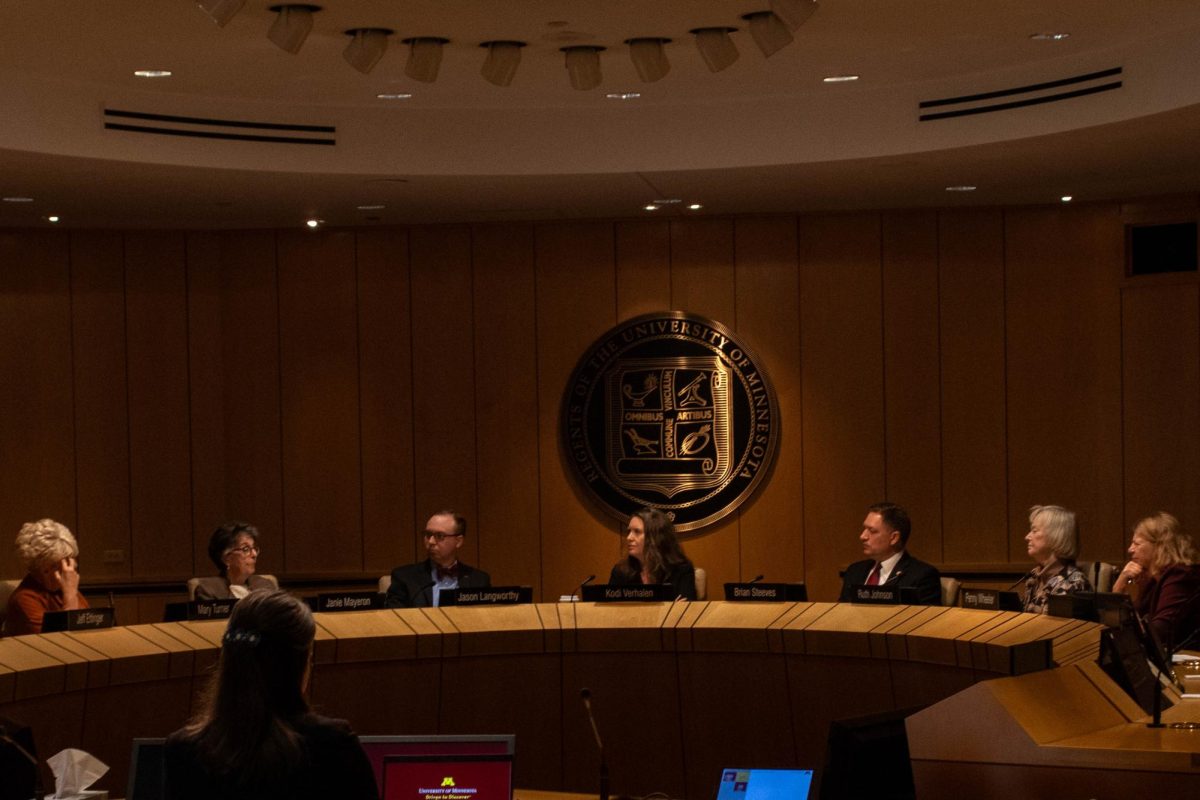
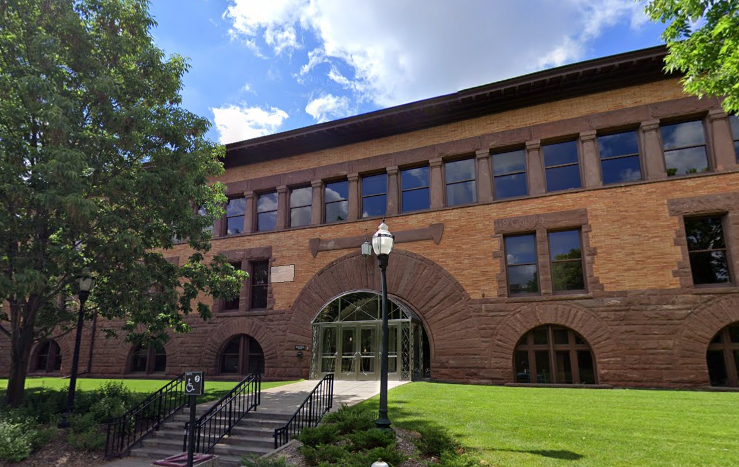
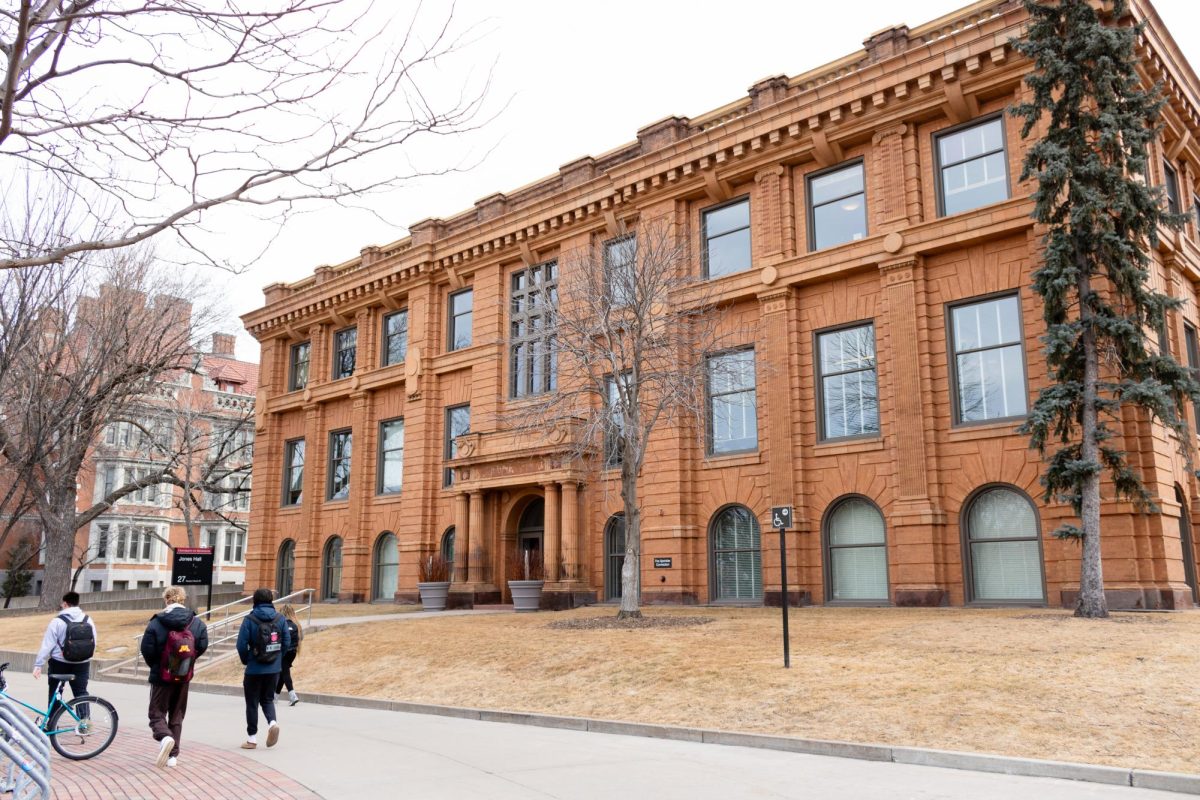



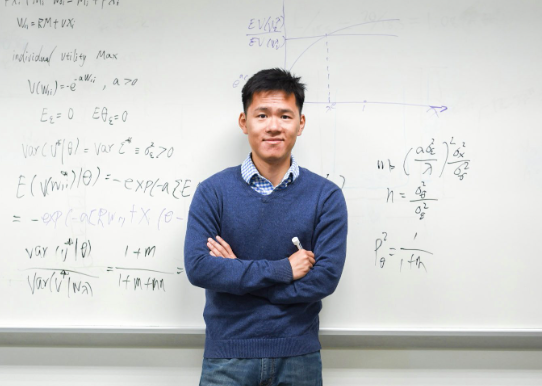

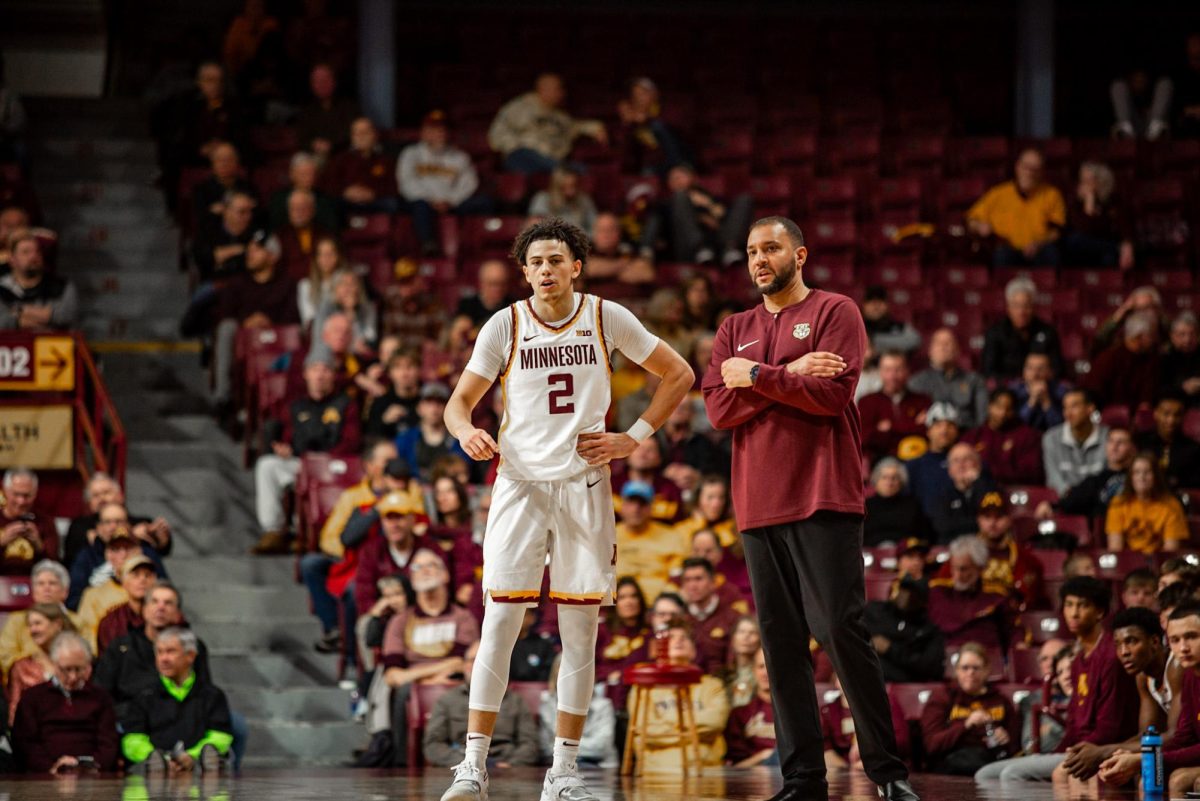





George Yoshida
Sep 4, 2024 at 7:45 am
good article. I’m curious to see the “new vision” that she helps create. I’m a multi-generation UofM grad and have 1 child who also graduated from U and have a student there now. when I graduated I swore if I ever had kids that they would NOT go to the U of M because my experience was so bad in the 80s. Sadly, not much has changed and it isn’t about campus safety. The U of M does not care about the kids. They say they do but they don’t. It’s a research based land grant school. Faculty only cares about their own research and not your kids. The students get in the way of their research. Counselors are over worked and want to shuffle kids out of their office as soon as possible. The only benefit of going to the U is the ability to say “I graduated from the U of M” and also as I told my kids that if you can survive the U of M then you can survive in the real world because the real world is tough like the U.